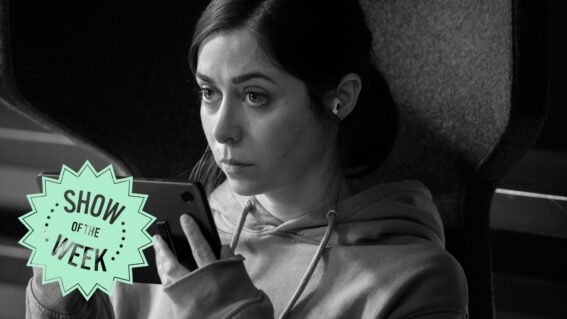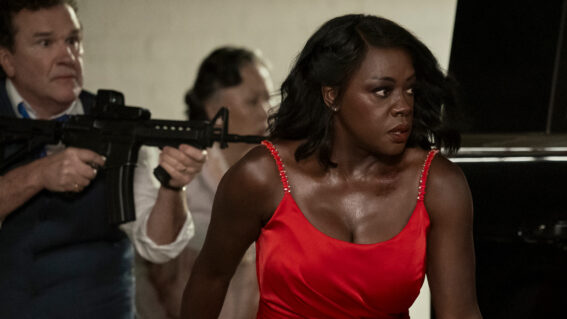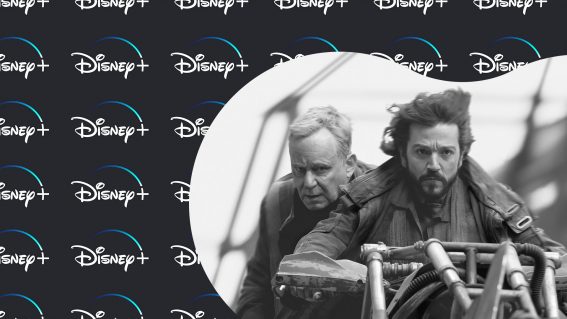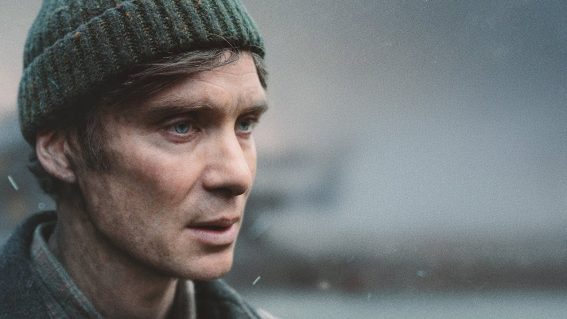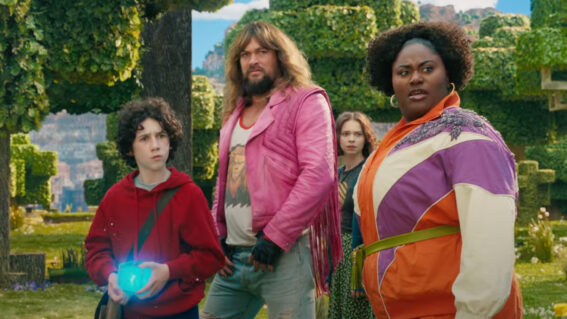Retro-futuristic drama Hello Tomorrow! takes place in a world of dreams

We’re all drowning in content—so it’s time to highlight the best. In her column, published every Friday, critic Clarisse Loughrey recommends a new show to watch. This week: Apple TV+’s retro-futuristic Hello Tomorrow!
“What is life without a dream to make it go down easy?” is one of the many finely tuned catchphrases of Jack Billings (Billy Crudup), lunar salesman and protagonist of Apple TV+’s new retro-futuristic drama Hello Tomorrow!. I wholeheartedly agree with him. There is no richness in our lives without imagining what extends beyond our reality. We are capable of great things because we’re able to envision the impossible. We become kinder, better people when we’re challenged to look beyond our own arm’s length. After all, what is art if not a series of dreams made to soothe the soul?
Hello Tomorrow! takes place in a world of dreams—mid-century America’s vision of the future, where Cadillacs, roadside diners, and 5 o’clock martinis live side-by-side with jetpacks, robots, and self-popping popcorn. Jack travels door to door, town to town, selling “lunar residence” packages to those disgruntled with their earthbound lives. Take a rocket ship and begin your life anew. It’s a world that feels as if it were conjured by a child, as they sit cross-legged in front of their parent’s TV watching man first land on the moon.
The series, developed by Amit Bhalla and Lucas Jansen and divided into ten, manageable half-hour capsules, is never a strenuous watch. Nor does it ever get that dark. These “lunar residences” aren’t quite what they seem to be but—and sorry if this spoils things slightly—there isn’t some twisted authoritarian scheme behind it all. Hello Tomorrow! is dystopian, but its central what-if isn’t delivered as a wave of existential terror, but as a gradual corrosion of the human psyche. It’s centered on the horrible, but gradual realisation that, in the future we all promised ourselves, we may feel exactly as we did before.
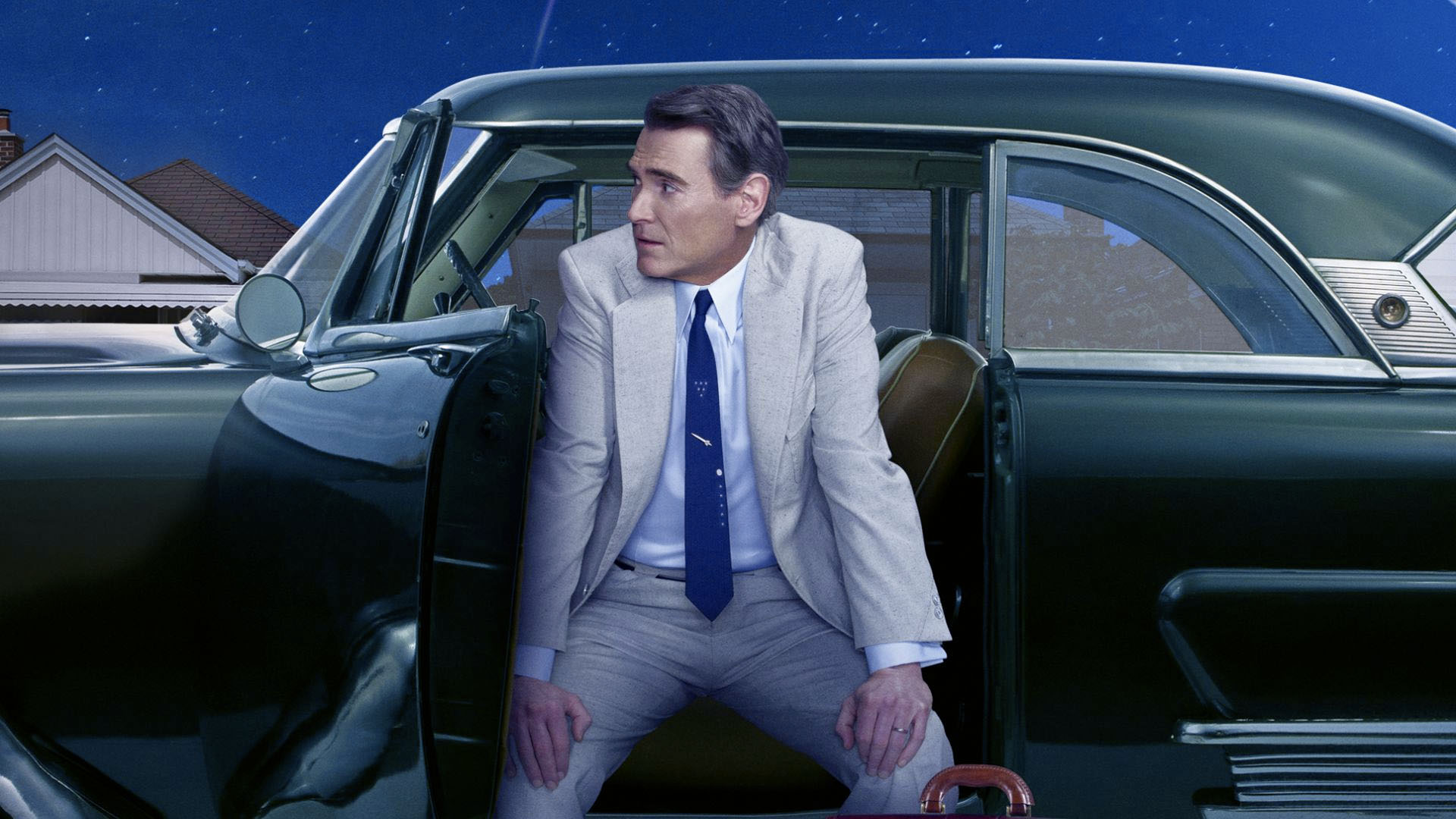
At the centre of it all, we have Jack—or, more precisely, Crudup’s magnificent rendering of Jack, as a sort of human puppet who’s cut his own strings and found he can no longer stand on his own two feet. Jack is a man of inexhaustible smiles that have started to crack at the edges. He’s a man who believes he has perfect control of himself, but who’s really regressing back to the wounded little kid with a sad story about a dead dad. He’s a salesman, yes, but one who’s sold the lie so many times that he’s started to believe himself. And that downward spiral is only accelerated by the sudden appearance of Joey (Nicholas Podany), the son he abandoned many years ago.
The tragedy of Hello Tomorrow! is well-hidden, but it swells slowly over the course of the series until it’s starting to push at the edges of the frame. Jack’s employees are all touched by the same, gentle despair: Eddie (Hank Azaria) is a man haunted by his debts; Herb (Dewshane Williams) has been missold a perfect marriage; Shirley (Haneefah Wood) places her faith in the wrong people. Customer Myrtle (Alison Pill) seeks vengeance when she feels she’d been lied to; Jack’s mother (Jackie Weaver) has to pretend she’s dying just to see her son.
All of these people have tied themselves to a promise. And all of them have let that one promise rule over their lives. “They just take it like they deserve to get screwed,” Myrtle, the one character who ever really retaliates in the face of betrayal, says late in the game. That’s the dark side of the dream, isn’t it? Our desires propel us, but they leave us weak and vulnerable, too. It’s how we burrow deeper into the trap of capitalism. We’re tricked into thinking dreams can be solutions, that we’re one object or place or job away from perfect happiness. We ignore the cost. We ignore the labour. We ignore the lies. As long as the carrot remains at the end of the rope, we continue on. As Hello Tomorrow! so neatly puts it, a trip to the moon can be a thing of wonder—but what happens once you actually get there?





